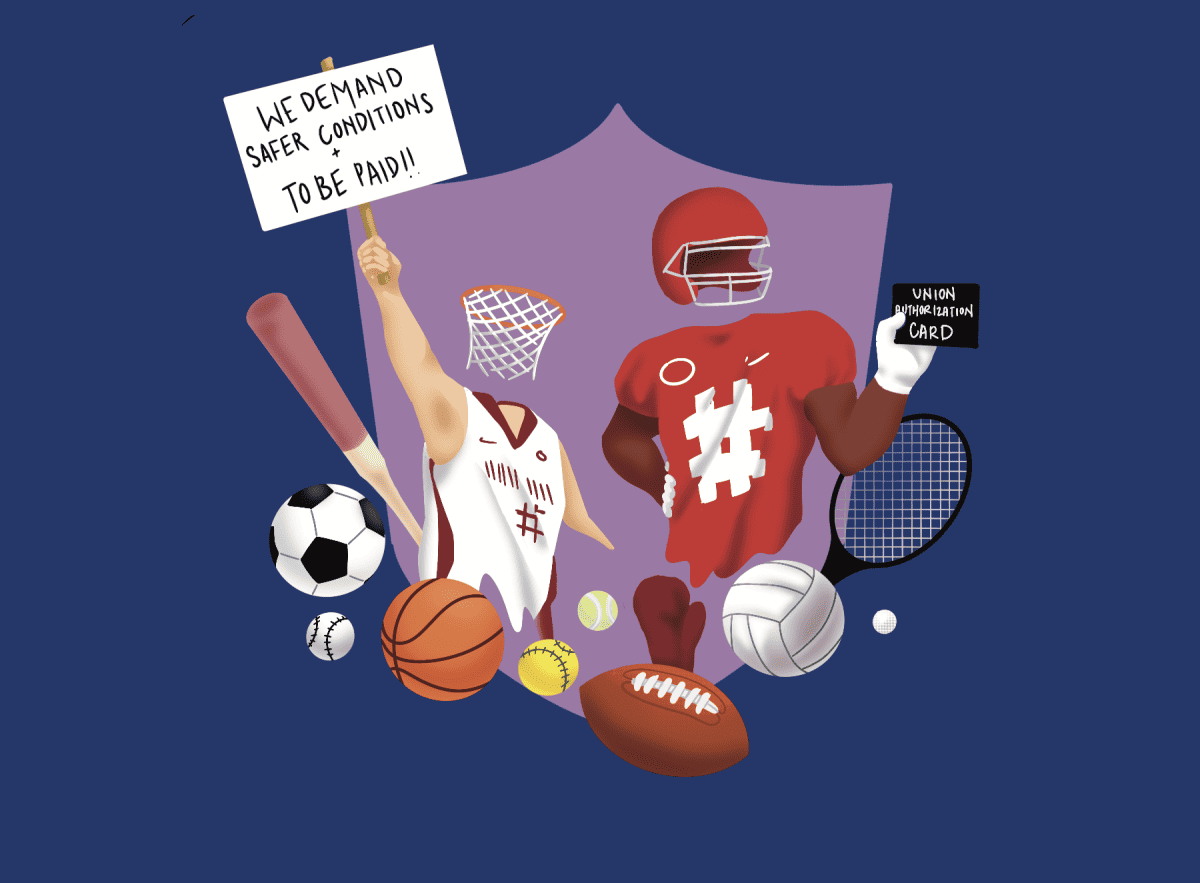Earlier this month, the Dartmouth men’s basketball team made history by becoming the first college sports team to unionize, voting to join the Service Employees International Union Local 560. With the university refusing to acknowledge the union, a case may soon reach federal court, implicating the future of collective action for college athletes across the country.
If such a case is brought to court, the ruling will hopefully fall on the side of athlete unionization. Dartmouth argues that athletes are not employees, but this is blatantly inaccurate, and especially inaccurate in the case of prominent Division I programs like those at The University of Alabama.
The fact of the matter is that college sports rake in substantial dollars for universities like Alabama, or even Dartmouth. Alabama athletics generated nearly $200 million last year, excluding $14.3 million in gifts. The Crimson Tide football team alone brought in nearly $130 million.
These are dollars that athletes generate through hard work and are more than entitled to. Arguments to the contrary have been largely squashed by the name, image and likeness revolution that has universally recognized college athletes as workers deserving of receiving compensation for the use of their name, image and likeness. It seems only obvious that they deserve pay for the profits they generate as well.
The National Labor Relations Board appears to tentatively agree, as a regional NLRB director has ruled in favor of the Dartmouth team, indicating that they are indeed employees. Dartmouth is now pressing the full NLRB to reverse this decision on the grounds that it is a “legal error.”
However, the simple truth is that Dartmouth, and likely most universities, does not want to pay its athletes.
It currently makes profit hand over fist from the labor put in by its student athletes on the court and the field while only paying the salaries of official staff and coaches. Why would the administration want that to change? If you were running a business based on unpaid labor, you might very well do the same.
In the case of Alabama, our athletes have an even stronger case for unionization rights and fair pay. Not only do these athletes generate hundreds of millions of dollars in direct revenue, they are also indirectly responsible for making the University a household name, helping to attract prospective students and bring in more money through tuition. It is hardly unreasonable to assume that the University would be far less prominent on the national stage if not for the success of its athletic programs and the student-athletes who contribute to that success.
Student-athletes go above and beyond to represent their institutions, putting their valuable time, effort and health on the line to do so. In no other circumstance would someone be expected to do so much without even having the ability to bargain for adequate pay.
Even our beloved former coach Nick Saban agrees. In May of 2023, Saban suggested unionization as a way to counteract the recruiting imbalance fostered by NIL alone, saying, “I mean, unionize it. Make [it] like the NFL. … I think that’s better than what we have now.”
Beyond negotiating for fair wages, professional sports unions like the NFL Players Association help athletes achieve success off the field. No athlete’s time in the spotlight is guaranteed, and just one injury can spell the end to an entire career. Unions provide stability and a network that athletes can rely on if and when they need to pursue something outside of playing.
This is arguably even more important for college athletes, whose careers can be cut short before they ever even start. It would benefit every college athlete – especially those looking to go pro – to have an organization that will be there to help them get back on their feet should the worst-case scenario happen.
Student-athletes across the nation should look to Dartmouth men’s basketball as an example and continue the push for unionization. The time for adequate compensation and effective organization for college athletes is long overdue.
It is time for universities to stop being exploiters and start being employers.









